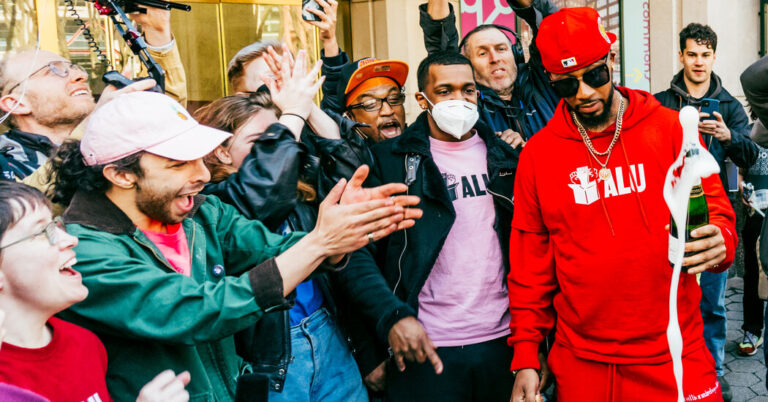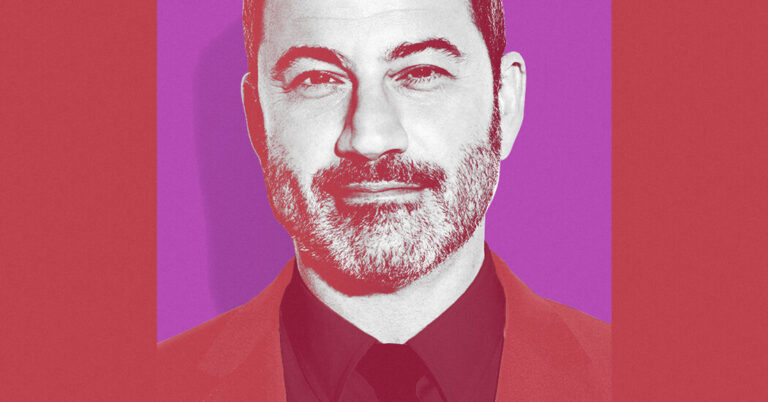Supreme Court to Hear Trump’s Immunity Claim, With Arguments Set for April
The Supreme Court on Wednesday agreed to decide whether former President Donald J. Trump is immune from prosecution on charges of plotting to overturn the 2020 election, further delaying his criminal trial as it considers the matter.
The justices scheduled arguments for the week of April 22 and said proceedings in the trial court would remain frozen, handing at least an interim victory to Mr. Trump. His litigation strategy in all of the criminal prosecutions against him has consisted, in large part, of trying to slow things down.
The Supreme Court’s response to Mr. Trump put the justices in the unusual position of deciding another aspect of the former president’s fate: whether and how quickly Mr. Trump could go to trial. That, in turn, could affect his election prospects and, should he be re-elected, his ability to scuttle the prosecution.
The timing of the argument was a sort of compromise. Jack Smith, the special counsel overseeing the federal prosecutions of Mr. Trump, had asked the court to move more quickly, requesting that the justices hear the case in March.
Mr. Trump, by contrast, had asked the court to proceed at its usual deliberate pace and to consider the case only after he asked the full U.S. Court of Appeals for the District of Columbia Circuit to review the decision of a unanimous three-judge panel, which had rejected his claim of absolute immunity.
In settling on the week of April 22, the court picked the last three scheduled argument sessions of its current term and seemed to indicate that its decision would follow before the end of its current term, in late June.
That does not mean the trial would start right away if Mr. Trump lost. Pretrial proceedings, currently paused, must first be completed. By some rough calculations, the trial could be delayed until late September or October, plunging the proceedings into the heart of the election.
Mr. Trump’s emergency application asking the Supreme Court to intervene had been fully briefed since Feb. 15, and the court’s delay in addressing it suggested that the justices differed about how to proceed. It takes four votes to add a case to the court’s docket but five to grant a stay, and that math may have played a role in the court’s calculations.
A separate case, on Mr. Trump’s eligibility to hold office, may also have played a part. The court heard arguments in that case, from Colorado, on Feb. 8 and is expected to rule soon.
If the court rules for Mr. Trump in the Colorado case, it might be attracted to the optics of ruling against him on his claim of immunity, which legal experts say is an ambitious argument with potentially frightening implications.
The Supreme Court’s brief order said the court would decide this question: “Whether and if so to what extent does a former president enjoy presidential immunity from criminal prosecution for conduct alleged to involve official acts during his tenure in office.”
In his emergency application, Mr. Trump said the appeals court panel had been wrong to rule that he may be criminally charged for his conduct as president. Total immunity for his official conduct, Mr. Trump’s application said, is required by the separation of powers, implicit in procedures for impeaching the president and needed to prevent partisan misuse of the criminal justice system.
“An absence of criminal immunity for official acts threatens the very ability of the president to function properly,” the filing said. “Any decision by the president on a politically controversial question would face the threat of indictment by the opposing party after a change in administrations.”
Mr. Trump, widely considered the Republican front-runner, added a practical concern.
“Conducting a monthslong criminal trial of President Trump at the height of election season will radically disrupt President Trump’s ability to campaign against President Biden — which appears to be the whole point of the special counsel’s persistent demands for expedition,” the application said. “The D.C. Circuit’s order thus threatens immediate irreparable injury to the First Amendment interests of President Trump and tens of millions of American voters, who are entitled to hear President Trump’s campaign message as they decide how to cast their ballots in November.”
Mr. Smith, the special counsel, took issue with every element of his argument, citing his efforts to subvert democracy.
If Mr. Trump’s “radical claim were accepted,” Mr. Smith wrote, “it would upend understandings about presidential accountability that have prevailed throughout history while undermining democracy and the rule of law — particularly where, as here, a former president is alleged to have committed crimes to remain in office despite losing an election, thereby seeking to subvert constitutional procedures for transferring power and to disenfranchise millions of voters.”
Mr. Smith added that there was no reason to fear tit-for-tat prosecutions that would chill other presidents from taking decisive action.
“That dystopian vision runs contrary to the checks and balances built into our institutions and the framework of the Constitution,” Mr. Smith wrote.
In a supporting brief urging the justices to deny Mr. Trump’s request for a stay, several former prominent officials who had served in Republican administrations said the court did not need to rule broadly, as the conduct Mr. Trump is accused of was so clearly outside of any immunity the Constitution might confer.
“Denying a stay would not preclude possible federal criminal immunity for a president’s official acts in some different, exceptional situation,” the brief said.
Mr. Smith echoed the point, citing the officials’ brief. “A sufficient basis for resolving this case would be that, whatever the rule in other contexts not presented here,” he wrote, “no immunity attaches to a president’s commission of federal crimes to subvert the electoral process.”
Check out our Latest News and Follow us at Facebook
Original Source







